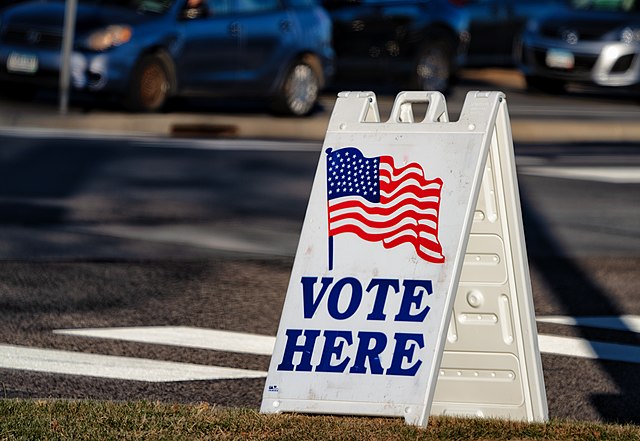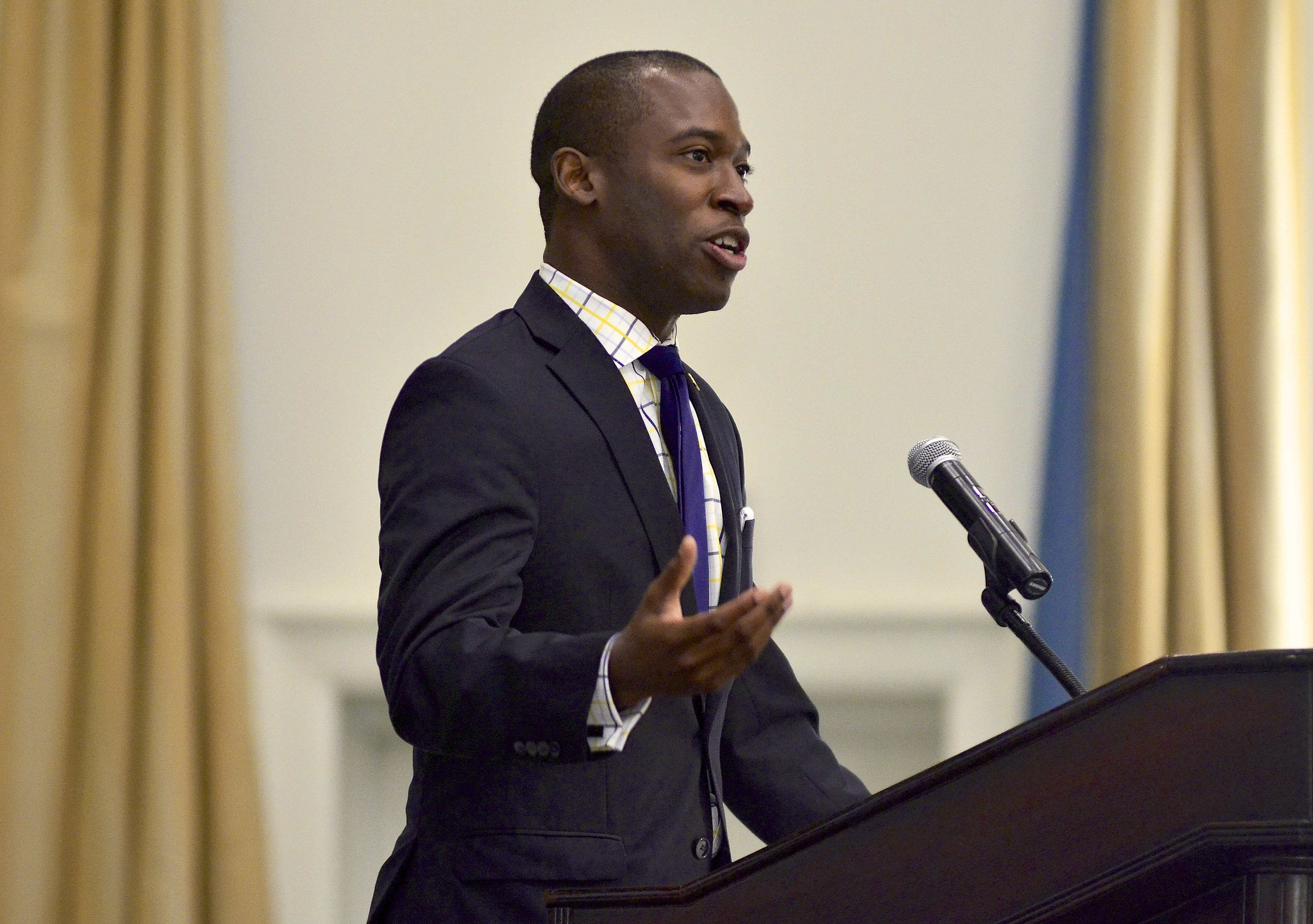“The first wall to fall was pushed over in 1980 in the Polish shipyards. Later, other symbolic walls came down, and the Germans, of course, tore down the literal wall in Berlin. The fall of the Berlin Wall makes for nice pictures. But it all started in the Gdansk shipyards.”
— Lech Walesa on the Fall of the Berlin Wall (2009)
First and foremost, today is the anniversary of the fall of the Berlin Wall. I remember watching this on live television as reporters were at first incredulous that it was even happening followed up with reports that Berliners — East and West — were swarming the wall and using hammers to pry it apart.
The impossible now seemed possible. Just two years later, the Soviet Union was mere weeks from moving from memory to history — and on Christmas Day in 1991 of all days.

So much for predictions of a red wave, eh?
The RCP projections for a R+2.5 generic ballot did not produce the three point “shy Tory” bounce many were expecting. Instead, the generic ballot may have been a few points shy of the RCP projections themselves (the pollsters working for Politico had the numbers as high as D+5 — which would have been not just historic but unparalleled).
There is some effort today in Virginia to argue that the reaction against both Hung Cao in VA-10 and Yesli Vega in VA-07 can only be explained by Democratic racism against minority candidates and white Republicans who refused to support either — which is specious nonsense. VA-07 had over $30 million spent in that race, whereas Cao came within a razor’s edge of beating an entrenched Democrat. If a few more resources had been devoted to Cao, maybe the result in VA-10 would have been different?
The fact of the matter is that the red wave simply wasn’t there. In states where mainstream conservative candidates ran — DeSantis, Abbot, Kemp — Republicans had a Roman triumph of an evening. Yet in states where more populist candidates won their primaries, the results were catastrophic in Pennsylvania and Georgia.
The difference between Kemp’s gubernatorial bid and Walker’s Senate bid? Eight points.
WINNERS
- DeSantis, Kemp and Abbott — Republicans who ran conservatives rather than populists won by huge margins against well-funded Democratic opposition, indicating that the voting public in all three states are more than prepared to vote for conservatives, but will go out of their way to punish Trump-style populists.
- Dobbs v. Jackson and a post-Roe America — In the states that passed some of the most restrictive measures against abortion? Republicans didn’t just carry the day, but carried it in numbers. Nowhere in America was abortion a deciding factor, and despite the millions spent to defend the practice, most Americans find the practice of leaving a baby to die on a cookie tray in a botched abortion abhorrent. Go figure, right?
- Representative-elect Jen Kiggans (VA-02) — So she didn’t win by 13 points… but if you figure a built in R+2.5 during the Youngkin race in 2021, it probably means we were closer to even in the generic ballot. Nevertheless, Kiggans ran a picture-perfect campaign from start to finish and it showed.
- Representative Bob Good (VA-05) — One almost hesitates to put Good in the winner’s column any more than we might put Cline or Griffith in a winner’s column. After all, it has to be a contest first, right? Good easily dispatched his Democratic opposition in just about every area of VA-05 except Albemarle County and Charlottesville. More notable for local races, you now have a new theoretical maximum for taking back local boards of supervisors and (perhaps more importantly) recalcitrant school boards. . .
- Hung Cao (VA-10) — There’s no way Cao should have even come close in this race. If Cao had a fraction of the cash being spent in VA-07? Either way, if conventional wisdom is that you need to run twice in order to bump off an incumbent, I look forward to a victorious run in 2024.
- Former Governor Jim Gilmore (R) — Not only is the former governor holding feet to the fire in Washington on Ukraine, but Gilmore actively crisscrossed the Commonwealth for candidates across the board. As one of the few governors able to unite both the conservative and populist constituencies of the GOP, that deserves both appreciation and notice.
- Former Governor George Allen (R) — If you’re not following Allen’s exploits across Virginia and elsewhere, do so. Talk about a guy who just loves Virginia.
- Yard signs — Consultants hate yard signs because they are damn near expensive and don’t vote (and worse, don’t line the pockets of consultants). Voters love yard signs because they remind your neighbors that it is OK to be a Republican in an institutional environment (media, academia, public education, entertainment, etc.) that loathes anything that isn’t Democracy! (TM) and all that nonsense. Something to be said for the bandwagon effect. . .
- Rep. Abigail Spanberger (D) — Notice how she won — she unloaded the campaign warchest early tying to define Vega before she could define herself, then pivoted towards the center. Challengers require two things to bump off an incumbent: (1) a reason to hire the challenger and (2) a reason to fire the incumbent. Vega’s consultants should have seen this coming from a mile away and protected their candidate accordingly. . . and didn’t, which quite frankly drives me up a damn wall. Spanberger is most likely the lead Democratic candidate for governor in 2025, so keep tabs on this one in a district where Republicans can (and should) challenge her every year.
PUSH
- PWC Supervisor Yesli Vega (VA-07) — As a candidate, person, and leader, Republicans really could not have asked for a better soul than Yesli Vega to lead in VA-07. Her resume is outstanding, her record in PWC stellar, and her faith genuine. Republicans picked the right candidate to represent them in the PWC and Fredericksburg area, and the energy was genuine and real.Vega could have won and by rights should have won in a district that had turned into a national race.The problem was that her consultants allowed Spanberger to define Vega early, thus creating the problem of introducing herself to the district under fire. The energy for Vega was clearly there, but the same Axiom Strategies who won lazy in 2021 with Youngkin ran lazy in 2022 for Vega — and this time there was no rural Virginia to cover up the lackadaisical, rookie effort.
Yesli deserved better from her consultants. The good news is that she has plenty more to offer Virginia politics and will hopefully consider another stab at things in 2024 — with superior advisors who actually win. - The Republican Party of Virginia (RPV) — Once again, we are parachuting paid staffers from out of state to tell local volunteers who work — for free — how to do their jobs. Perhaps the problem is intractable, but the grumbling is back again. Nevertheless, the improvement from the previous era is noticeable. Let’s hope that keeps going with every turn of the wheel.
- Virginia House and Senate Republicans — It should be dawning on just about everyone now that the 2023 House and Senate races will be nationalized referenda on Trump — especially if the former president announces on 15 November as speculated (which I doubt if for no other reason than he would have to file with the FEC, and who wants that headache). If Georgia is any indicator, an eight point impact. Needless to say though, if Youngkin is going to have any chance at passing his Day One or Day Two agenda, Republicans need the State Senate — this is not optional if we want to roll back the Northam era.
LOSERS
- Governor Glenn Youngkin (R) — Why are we campaigning outside of Virginia (ostensibly for POTUS) when we can’t even get our own candidates across the finish line inside Virginia? The Old Dominion has been viewed as a springboard to higher office by most occupants of the Governor’s Mansion. There’s a job to do here, Your Excellency.
- Jeff Roe and Axiom Strategies — Every 10 years or so, some new flash-in-the-pan consultant storms onto the scene in Virginia with the intention of telling the folks who have been here how the game is really played. Until they start playing the game. . . and drop winnable races.
- Democrats on Twitter — Notice how quiet it is?
- Virginia’s legacy media outlets — The pretense of objectivity now gone, it will be difficult if not impossible for them to re-establish where just 20 years ago they might have had a semblance of being a public square, but today merely reduced organs of the political left. Damn shame, because Virginia’s newspapers used to be about a lot more than just the AP wire and repeating worn talking points. Until there is more balance in their op-ed pages, expect the trend of Republicans simply refusing to talk to legacy media outlets to continue in the digital age.
- Social media influencing — Not sure that either the Democrats or Republicans really leveraged social media apart from YouTube advertising. Once upon a time, there were recommendations to spend at least 5-10% of a campaign budget online. Yet given the way Facebook and Twitter have handled themselves in recent months, why would any campaign risk being throttled?
Something to consider as well. If we are the sort who counts their chickens before they are hatched? The elections may have disappointed.
Yet in the grander scheme of things, did Republicans make advances? Are we even slightly better off than we were last week? The answer to that is an overwhelming yes in places where we did gain ground — VA-02, Florida, Georgia, Texas.
Overall, Republicans have a clearer sense of what it will take to beat the Democrats in 2024. Meanwhile, the places where Democrats made “gains” are in states that are effectively in decline — California, New York, Illinois — whereas the states where Republicans are faring well — Georgia, Florida, Texas — are states that are growing.
Long term? The future is brighter than it appears. Short term? We have actual work to do if Virginia is going to be a part of that brighter future.
One More Thing. . .
Keep your eyes on this story where Democrats spent millions of dollars pushing weaker candidates against conservatives in key races:
Democratic groups spent at least $51.5 million in Republican primaries this year, according to a Reuters tally. But they didn’t always get the result they wanted: in races in Colorado, Nevada, California and Virginia, the candidate they were supporting did not win the primary.
So much for interfering in our elections. Yet it does go to show how — since 2014 in primary races in Virginia — Democrats have shown a proclivity for pushing weaker candidates they believe they can crush in general elections.
The Democrats seem rather pleased with their investment.






